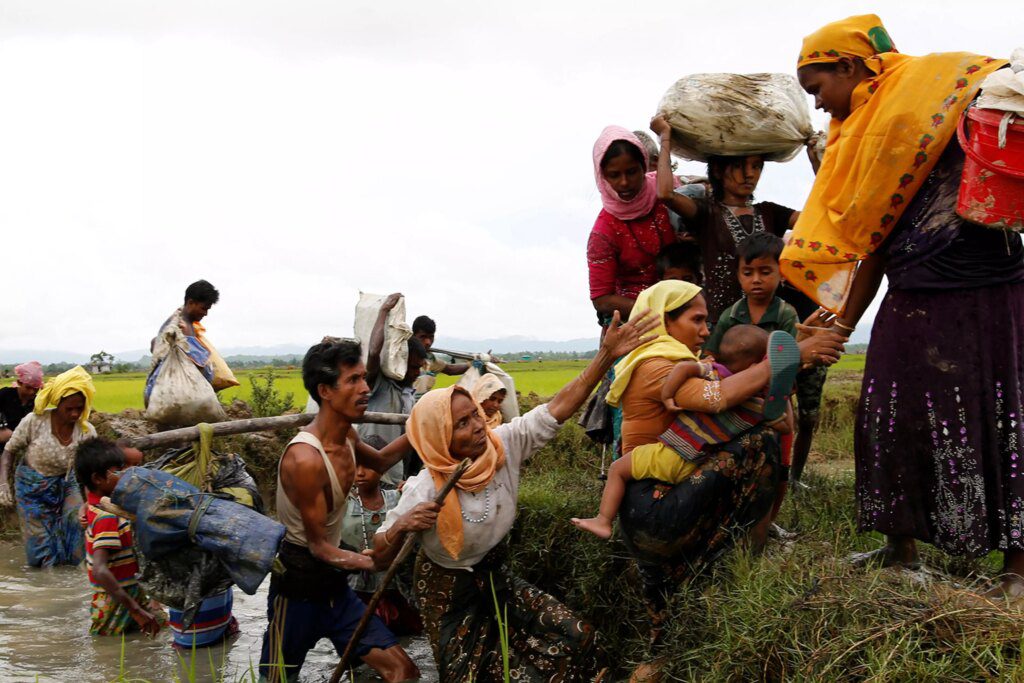The Rohingya Crisis is an ongoing humanitarian catastrophe that has garnered global attention due to its severe human rights violations and displacement of a vulnerable ethnic minority group. This content highlights the background and current situation of the crisis, emphasizing the immense suffering and trauma faced by the Rohingya people. It also delves into the international legal and political ramifications of the crisis, discussing the application of legal frameworks and the need for accountability. The content concludes by emphasizing the importance of collective international action to provide aid, justice, and protection for the Rohingya people and prevent future human rights violations.
The Rohingya Crisis: A Humanitarian Catastrophe with International Legal and Political Ramifications
Introduction
The Rohingya Crisis is an ongoing humanitarian catastrophe that has grabbed international attention due to its severe human rights violations and displacement of a vulnerable ethnic minority group. This crisis not only brings immense suffering to the Rohingya people but also has significant legal and political implications on the global stage.
Background
The Rohingya are a mostly Muslim ethnic minority group residing in the Rakhine State of Myanmar. Despite their long history in the region, they have been subjected to discrimination, marginalization, and targeted violence by the Myanmar government and local extremist groups. The most recent escalation of violence began in August 2017, triggering mass exodus and displacement of hundreds of thousands of Rohingya people into neighboring Bangladesh.
Humanitarian Catastrophe
The plight of the Rohingya people is nothing short of a humanitarian catastrophe. Reports of mass killings, rape, torture, and ethnic cleansing have emerged, painting a brutal picture of violence and persecution. The United Nations has described the situation as a textbook example of ethnic cleansing, with potential genocidal intent.
The refugee camps in Bangladesh, where most Rohingya have sought refuge, are overcrowded and lack basic amenities. The living conditions are dire, with limited access to clean water, sanitation, and healthcare. Malnutrition and disease outbreaks are rampant, affecting mostly women and children. The Rohingya population is facing immense trauma and suffering, with little hope for a safe return to their homeland.
International Legal Ramifications
The Rohingya crisis poses significant legal challenges and calls for international action to ensure justice and accountability. Several international legal frameworks apply to this crisis, including the Genocide Convention, the International Criminal Court (ICC), and other human rights treaties.
The Genocide Convention prohibits acts committed with the intent to destroy, in whole or in part, a national, ethnic, racial, or religious group. The allegations of mass killings, sexual violence, and forced displacement indicate potential genocidal intent, which demands a thorough investigation and prosecution of those responsible.
The ICC can play a vital role in holding individuals accountable for war crimes, crimes against humanity, and genocide. However, Myanmar is not a party to the ICC, thus limiting its jurisdiction over the crimes committed. Nevertheless, efforts are being made to establish a legal avenue for accountability through special tribunals or the universal jurisdiction principle, which allows domestic courts to prosecute crimes regardless of where they were committed.
Political Ramifications
The Rohingya crisis has sparked widespread condemnation and demands for action from the international community. It has strained diplomatic relations between Myanmar and numerous countries, leading to sanctions, embargoes, and travel ban impositions on Myanmar officials.
The crisis has also tested the capabilities of regional organizations, such as the Association of Southeast Asian Nations (ASEAN). While ASEAN has traditionally adhered to a non-interference policy, the severity of the Rohingya crisis challenges this stance. ASEAN member states have been urged to take a more active role in facilitating dialogue, humanitarian assistance, and pressuring Myanmar towards a resolution.
Conclusion
The Rohingya crisis signifies a grave humanitarian catastrophe with far-reaching legal and political ramifications. International organizations, governments, and individuals must continue to demand justice, protection, and accountability for the Rohingya people. Efforts should focus on providing immediate humanitarian aid to those affected, as well as pursuing legal avenues to hold the perpetrators accountable for their actions. Only through collective international action can we hope to bring an end to this ongoing tragedy and prevent future violations of human rights.
